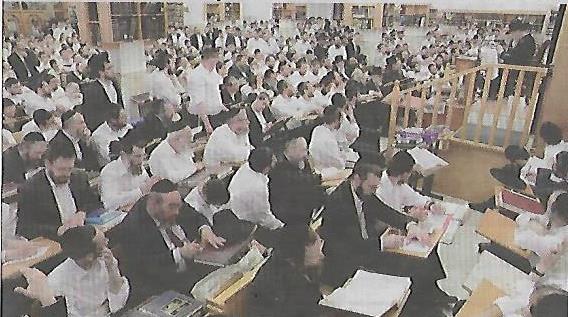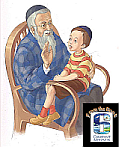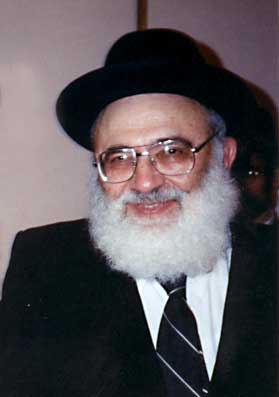  |
|
| |||||||||||||||
|
This Google Custom Search looks only in this website. A Convert with Jewish Relatives - a True Story for Shavuos
The amazing story of Susi Doring Preston, a modern Ger Tzedek, has recently been the subject of various reports in Israeli media, particularly a story on Ynet (https://www.ynet.co.il/articles/0,7340,L-5505162,00.html).
In preparation for kabolas haTorah on Shavuos, the Mashgiach HaRav Don Segal spoke in the main beis medrash of Mir Yeshiva in Jerusalem.
On the eve of Mattan Torah, the administration of the world organization Dirshu, has released for the first time, the amazing behind-the-scene figures of the largest body in the world encouraging and promoting Torah study, figures which prove the tremendous impact of chizuk which Dirshu has throughout the world.
The activity around Yom Yerushalayim on 28 Iyar reminded us of the years before Zionism incited the area and noting the Jewish-Moslem relationship in Jerusalem before the so-called `capture' of the city. Old timers who could remember, said that there was a dramatic change in the behavior of their Arab neighbors after the Balfour Declaration in November of 1917.
This is an edited transcript of a tape of a lecture provided by the Aish Hatorah Audio Center. We have smoothed it out for written publication, but have not removed the sound and feel of the talk on which it is based. That is how most of his many talmidim remember HaRav Weinberg, zt"l. It was originally published in 2000, and explains a basic approach to the events of Shavuos.
From Our Archives Zman Matan Toraseinu, Part II
by Rav Zev Leff
The idea that we explained until now, that the Torah is in fact a present and not a liability, can explain the reaction of the angels who begged G-d to leave the Torah with them and not to give it to human beings. Yet, when Moshe Rabbeinu was directed by G-d to answer their claim, he refuted their request for Torah by saying that basically none of the Ten Commandments -- and hence the Torah in general -- applies to angels who have no idolatry, do not work, have no parents, cannot murder, have no immorality and so on.
Torah and Happiness
By Mordecai Plaut
We have the richest society in human history, but not the happiest. According to a recent article in the New York Times, the average American family makes 16 percent more money now than 30 years ago, but the percentage of people who described themselves as "very happy" fell from 36 percent to 29 percent.
EARLIER EDITORIALS
A Mission to Spread
Daas Torah
Looking for the
Best in Yiddishkeit
The Immorality
of Palestinian Combatants and Noncombatants
|
||||||||||||||







